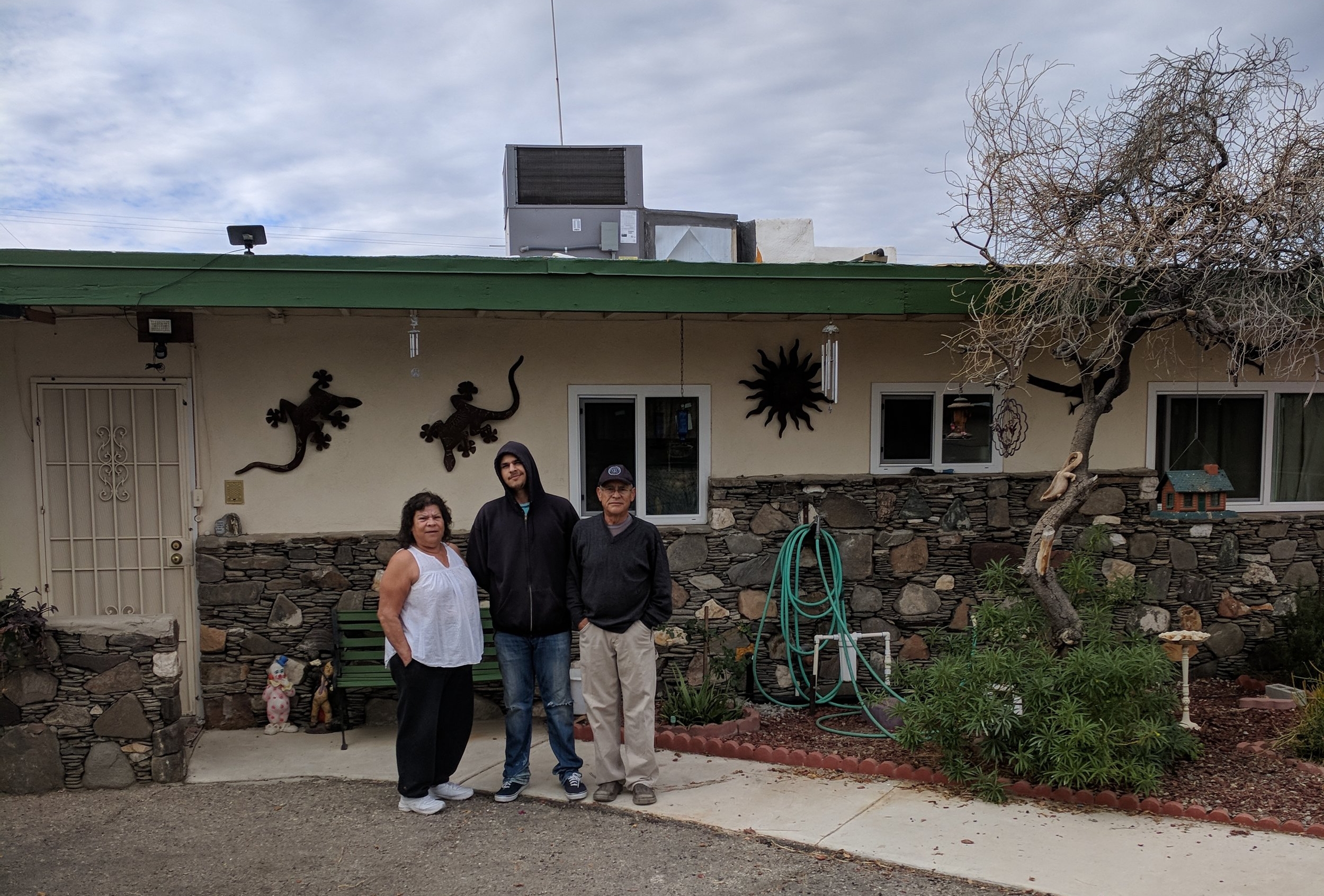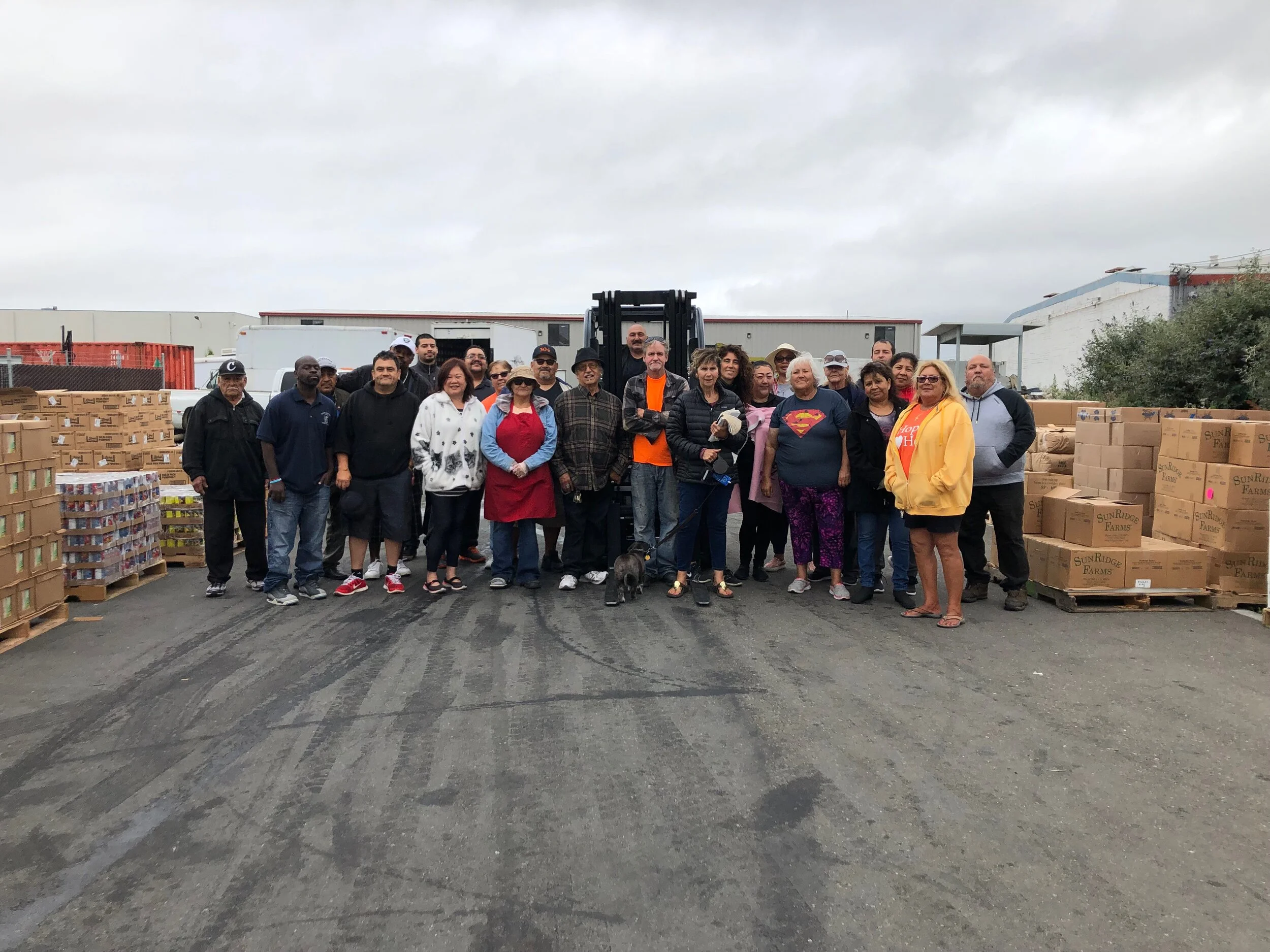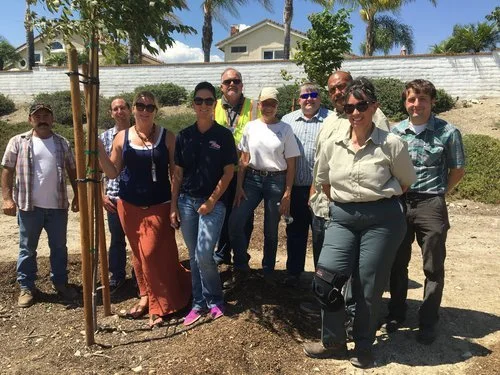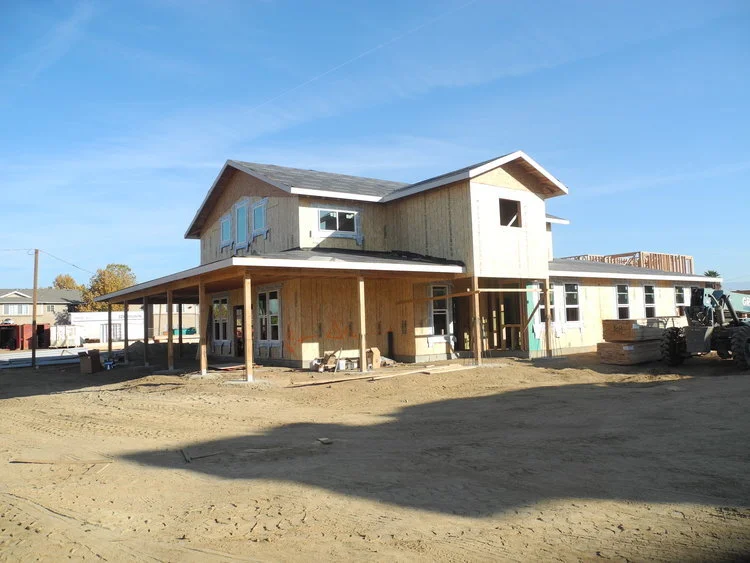The Allison Apartments, located in San Diego, were completely renovated and energy conserving refrigerators, LED lighting, and heat pump water heaters funded by LIWP were installed. Another CSD contracted partner, GRID Alternatives, installed an 87-kilowatt rooftop solar PV system and provided a workforce development opportunity to ten trainees, nine of whom subsequently found employment in the solar industry.
Energy Efficiency and Solar PV System Brings Comfort and Affordability to Mecca Household
For years, Irma Vargas’ family of four struggled to pay the high utility bills that come with living on the north shore of the Salton Sea in Mecca while still maintaining a comfortable and healthy home for their children. The family’s limited income made the $400 per month bill nearly impossible during the summer months when temperatures can exceed 110°F in their Riverside County community.
Replate, Inc. Matches Surplus Food with Communities in Need
Food Waste Prevention and Rescue in Alameda County
Expanding the Wholesale Produce Market Recovery Program in Los Angeles
Food Forward, which recovers produce and makes it available to hunger relief agencies in eight southern California counties, is expanding its Wholesale Produce Market Recovery Program. With the help of California Climate Investments, Food Forward will open a new “Produce Depot” near the wholesale produce market in downtown Los Angeles and double its food recovery capacity. In addition to fighting food insecurity in southern California, the project will benefit disadvantaged communities and the environment by supporting jobs and combating climate change.
Driving Clean Financing Assistance Program
The Community Housing Development Corporation, a community‑based organization in Richmond, received over $6.5 million from California Climate Investments for a pilot project to assist with the purchase of newer, cleaner cars in low‑income households in Sacramento and the Bay Area. The pilot project, known as Driving Clean Assistance Program, provides up to $5,000 for hybrid or plug‑in electric vehicle price buy‑down and up to an additional $2,000 for electric vehicle service equipment. The pilot enables low‑income individuals and families, who would otherwise not qualify for a loan due to credit challenges, to obtain a loan at competitive rates. This transformative initiative includes credit counseling, budget counseling, and financial education.
Community Knowledge and Collaborative Research Facilitate Equitable Energy Transitions
In Los Angeles County, transitioning to clean, renewable energy will improve air quality and reduce the overall carbon footprint in California’s most populous region. With a $638,878 award from California Climate Investments through the Climate Change Research Program, a partnership led by the University of California, Los Angeles and Liberty Hill Foundation is helping to make this transition equitable, affordable, and beneficial for people living in the area’s priority populations. That means engaging these communities at all stages of the research.
Nation's First All-Electric Bus Route Rolls Out in South Stockton
Growing Trees and Community Capacity in San Bernardino County
Investments in Social Resilience Support Adaptation to COVID-19 Challenges
The COVID‑19 pandemic has exacerbated existing food insecurity in the Watts community in Los Angeles, where the Transformative Climate Communities Program in 2017 made a $33.25 million investment of California Climate Investment funds to implement the Watts Rising vision. To ensure continued access to fresh produce throughout the pandemic, the Watts Rising collaborative partners harnessed their existing virtual community engagement events as a platform to distribute food and critical public health information.
Transform Fresno Initiative Brings Solar and Energy Efficiency Projects to Low-income Households
Transformative Climate Communities Supports a Vision for a Healthier Watts
Community Members Lead Transformative Climate Solutions in Southwest Fresno
Watershed Research and Training Center Coordinates Forest Management Across the State
Low-income Weatherization Program Helps Casas de la Viña Residents Save Money and Energy
Dana Guzman is a resident of Casas de la Viña, a 56-unit affordable apartment rental community that serves low-income families and farmworkers. The mother of two boys, Dana moved to Casas de la Viña when she needed to find a new home. Self-Help Enterprises was able to install solar photovoltaic (PV) systems and make energy efficiency improvements at Casas de la Viña with Cap-and-Trade dollars.
Ecological Resilience through Regenerative Grazing
Building San Ysidro Community Capacity to Understand and Act on Air Quality Solutions
San Ysidro is a predominantly low-income, 93% Latino community, situated along the US-Mexico border, across from the Mexican city of Tijuana. Sources of air pollution include vehicle exhaust from traffic waiting to cross the San Ysidro Port of Entry, the largest land-border crossing in the Western Hemisphere, as well as air pollution from Mexico.
Understanding Sources and Health Impacts of Local Air Pollution in South Central Los Angeles
Launched in January 2019, the South Central Los Angeles Project to Understand the Sources and Health Impacts of Local Air Pollution (SCLA‑PUSH) aims to help South Central LA organizations and community residents better understand the state of air quality and health in their community and engage in air monitoring and data analysis to advance community‑driven solutions in air quality policy. The project was awarded $300,000 by the AB 617 Community Air Grant Program and is led by Physicians for Social Responsibility–Los Angeles (PSR‑LA).
Adaptive Reuse Brings Affordable Housing, Walkability, and Community Arts Space to Santa Ana
In June 2020, artists, their families, and low‑income earners in Santa Ana began moving into new affordable homes funded in part by a $12 million award from California Climate Investments through the Affordable Housing and Sustainable Communities program. In partnership with the Southern California Association of Governments, the Santa Ana Arts Collective development promotes sustainability and health through active transportation safety activities, supported by over .5 miles of bicycle facility improvements and 36 improved pedestrian crossings. The project also features a gallery space for resident and community artists, and Meta Housing is partnering with Western Community Housing to deliver on‑site adult education services.
Building Affordable Housing and Transportation Improvements in Dinuba
As early as this summer, Sierra Village will offer 44 affordable homes with easy access to bike lanes and sidewalks in the rural community of Dinuba. This apartment rental community will not only bring an affordable housing option to hardworking low-income families, but it will also feature a vanpool program and other transportation improvements, solar and water conservation features — all of which are designed to reduce GHG emissions.






















